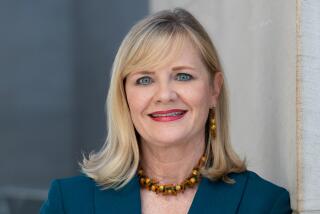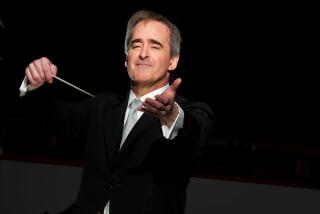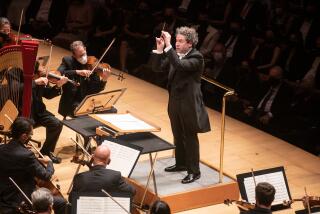Review: Andrew Norman’s astonishingly sustainable ‘Sustain’
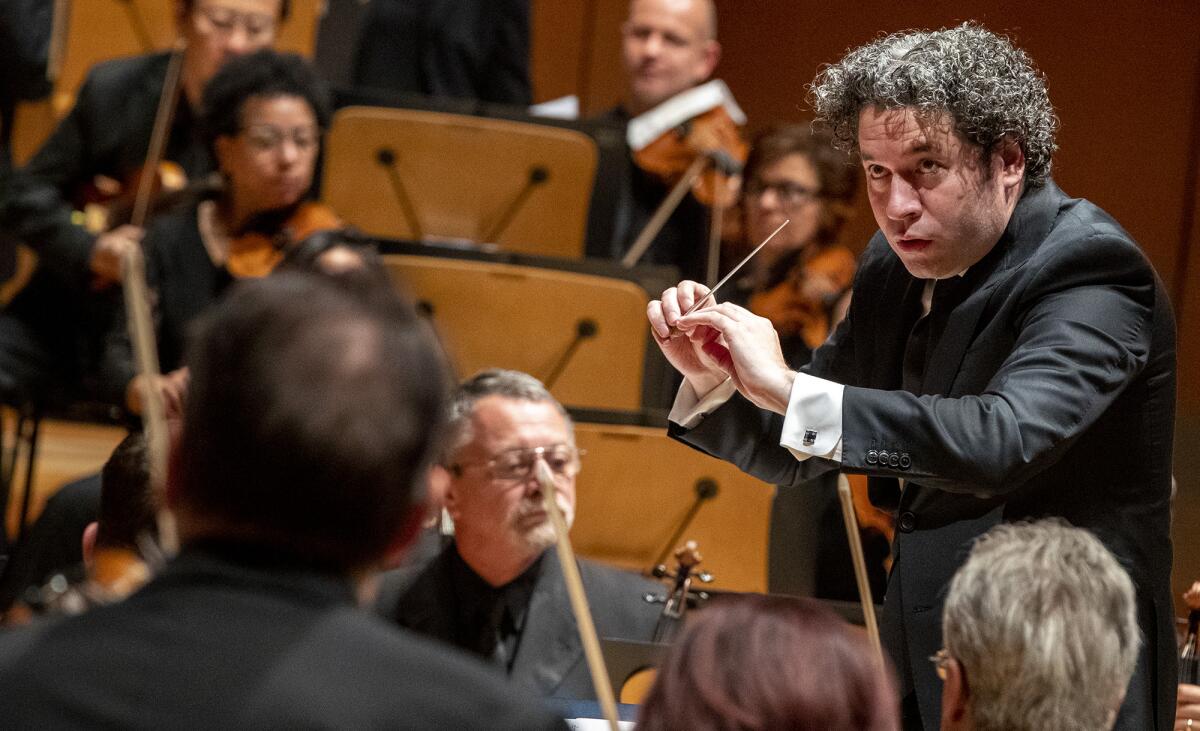
The full sustaining power of composer Andrew Norman’s mind-bending, enchanting orchestral piece “Sustain” first became evident about 9:30 p.m. Oct. 4, 2018. That would be about 20 minutes, just over halfway, into its Los Angeles Philharmonic world premiere at Walt Disney Concert Hall.
At that point, a hooked listener had no choice but to go along for the marvelous ride as the score chaotically burst its seams, releasing sonic shards into the environment that would fall back to Earth as audible cosmic dust.
This was one of the first of dozens of commissions for the L.A. Phil centennial season, and it instantly became the talk of the new music community and beyond. Lo-fi recordings of Gustavo Dudamel’s spectacular performance, taken from a KUSC-FM (91.5) broadcast, were circulating. Not all of us came to the concert hall intending to have our hair stand on end, so there were walkouts, and I got an angry letter or two about the piece. But by and large, the sense was that the popular L.A. composer, still in his 30s, had come up with a masterpiece.
On Saturday afternoon, Dudamel repeated “Sustain” at Disney, this time as a prelude to Bruckner’s mighty Fourth Symphony, a program he will take on an L.A. Phil tour to Mexico City and London later this month (but not inexplicably to New York, where the orchestra will play only the Bruckner). In the meantime, Deutsche Grammophon has released an L.A. Phil recording in superb sound. Still, “Sustain” had not been played since the first performances, and its sustainability as a masterpiece needed confirmation.
When it comes to our very humanity, sustainability itself should to be the biggest concern of our time. We no longer have trust in what, if anything, can or will last. In an interview about music years ago, the Dalai Lama foretold our way of dealing with the future as needing to get over attachment, music in particular, since it is so addictive. Attachment to anything, he insisted, even his to Buddhism, holds us back.
The best thing about “Sustain,” other than its sheer beauty, is that it is by its very nature unattachable. The piece has a very specific structure, although you are not likely to follow it unless you know exactly what to listen for, which then defeats the point. The score operates in cycles that are signaled by an angelic run up the scale on two pianos tuned a quarter-tone apart.
Waves of string constellations rise and fall, interrupted by suppurating winds and consoled by brass chords. Everything is staggered. On paper, this is a riot of intersecting patterns that look like ant colonies on the move or seeds scattering in the wind. There is a motoric section in which the orchestra blows a ferocious wind before returning to mellower otherworldliness. The cycle lasts some 17 minutes before being repeated in a much abbreviated form and sped up several times. By then, you realize you have no way of knowing where you are going or why.
Progress proves unsustainable. Players are eventually left on their own in semi-improvisation, with a rudimentary percussion section attempting to maintain a beat. Two large pieces of suspended plywood are scraped. The pianos ring out irregular, exquisitely broken, off-tuned chords. We’re lost in a new world.
“You will have no idea where the pianists are by this point,” the composer writes in a note to the conductor near the end of the score. “It is up to you to sculpt the moment as you see fit.” Once more the opening signal, ringing as the strings air bow, instructed musicians to “make no sound ‘on’ your highest string.”
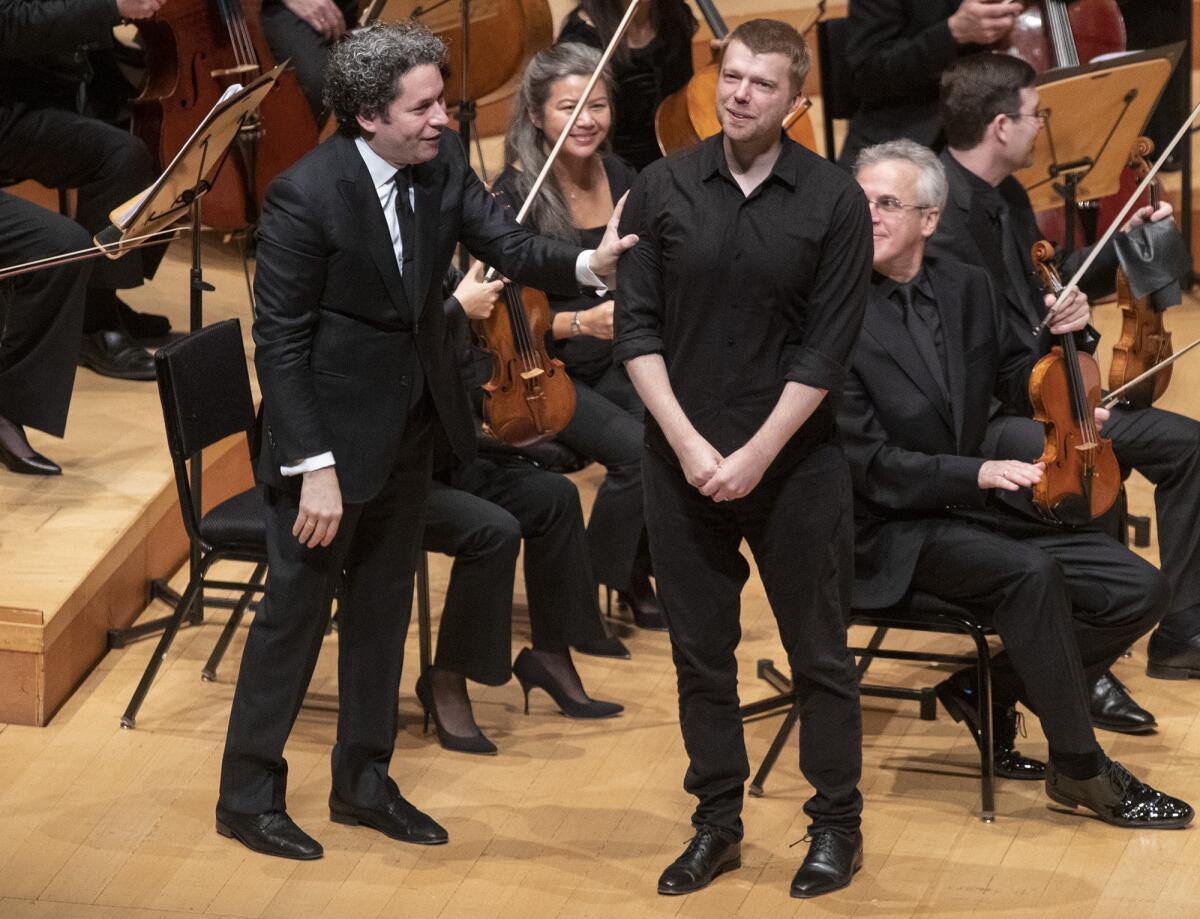
In his program note, Norman says “Sustain” is about his and our relation to the Earth. He credits sadness and loss in the music to this critical moment in history when we are not doing enough to sustain our planet. “Sustain” was played Saturday as L.A. and its environs burned. Loss was palpable.
Dudamel sped everything up ever so slightly from a year ago, adding a new sense of urgency. The L.A. Phil played with a remarkable confidence. Music, just vibrations in the air that don’t last, can’t save the world. But it can, and “Sustain” does, give us resolve.
Superficially, Bruckner’s Fourth Symphony suits “Sustain.” Bruckner is a composer for whom sound is a drug. Like Norman, he separates structure from form, from what we actually perceive. Counterpoint is design. You give yourself to string tremolos and to brass outbursts. Repetition solidifies. What Bruckner here hoped to sustain was his own sanity through spirituality, and for him, a massive orchestra is needed to get divine attention.
The Fourth is a staple of the L.A. Phil, which has recorded the symphony four times. Unlike the unstable “Sustain,” the Fourth is meant to leave you not just satisfied but also satiated. Sustaining tradition in an effusive yet propulsive performance under Dudamel, the symphony did just that once more.
Two hours later, at the Shatto Recreation Center on the outskirts of Koreatown, the L.A. Phil made yet another gesture at orchestral sustainability with a performance by the YOLA CDMX Tour Orchestra. The 96-member ensemble — students and alumni ages 10 to 21 from the various Youth Orchestra Los Angeles centers — will travel with the L.A. Phil to Mexico City, where it will perform with 100 Mexican student musicians under Dudamel.
This warmup concert was conducted by a new Dudamel fellow, Enluis Montes Olivar, a 22-year-old Venezuelan. He was a firebrand on the podium who whipped the kids up into a spirited and contagious, yet impressively disciplined, frenzy in short pieces, including Arturo Marquez’s “Danzón No. 2.”
A dozen years old, and growing by leaps and bounds, YOLA has become an example of the arts as an essential agent of sustainability for the future of L.A. Now we need to put out the fires and clean up the air so that the young musicians can properly breathe new life into our environment. Might not this also be a good moment for Norman, who is about to become a father, to write YOLA players a piece? They’re ready.
More to Read
The biggest entertainment stories
Get our big stories about Hollywood, film, television, music, arts, culture and more right in your inbox as soon as they publish.
You may occasionally receive promotional content from the Los Angeles Times.
